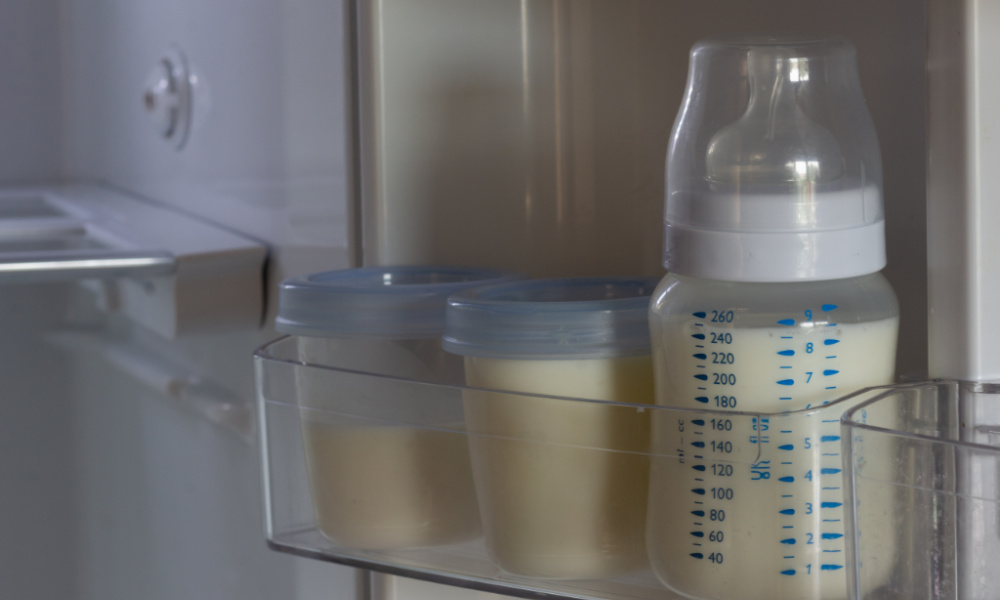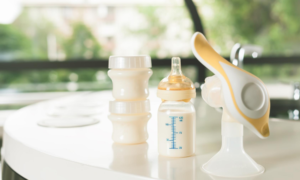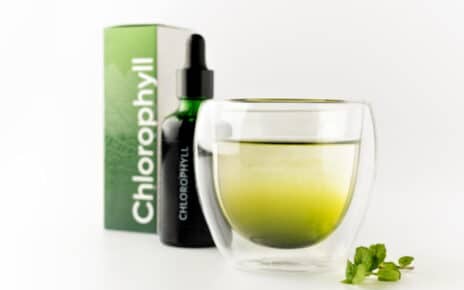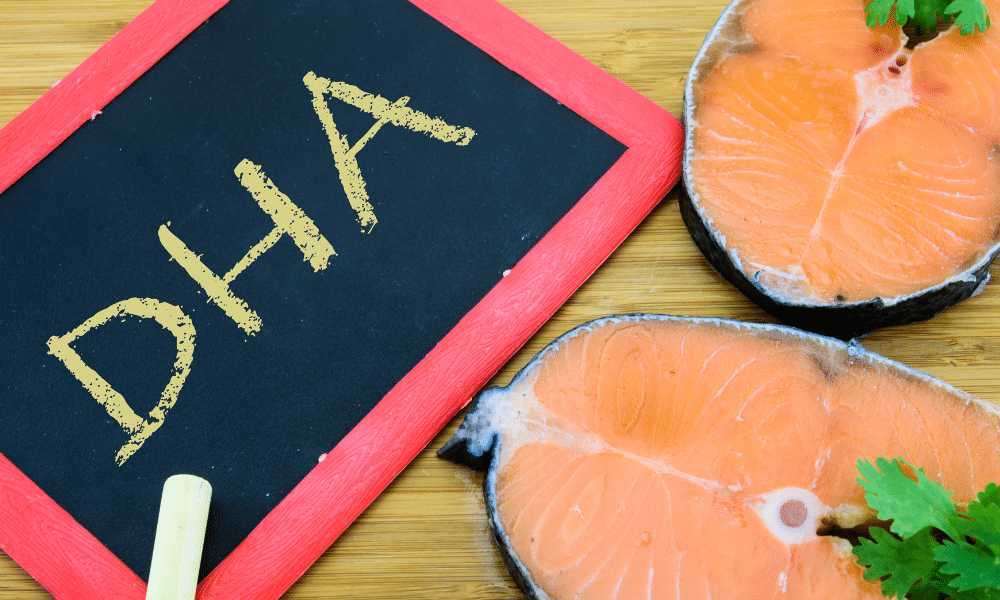How Long Does Breast Milk Last After Warming – Storing Freezing And Thawing Breast Milk Detailed Answer And Precautions
A woman has to go through multiple challenges to know what is best for her newborn when it comes to breastfeeding and taking care of him. If a woman has become a mother for the first time in her life, it becomes potentially hard to look after the baby because often new mothers have no clue of what is going on with the baby.
The inability to correctly analyze the situation and solve the problem for the baby may leave the mother both mentally and physically exhausted after postpartum. It makes her upset in all sorts of ways, and it might also largely contribute to her depression that most women tend to develop after the birth of their babies, known as postpartum blues.
The fact that a woman had an additional member in the family now is already so overwhelming that she might find it hard to adjust. On top of that, the care and the physical efforts into nurturing a baby works like an added job.
Not only the mother has to take care of herself after giving birth to her baby, but she has to look after her child, too. If the family of the woman does not support her mentally, emotionally, and physically then it becomes much more challenging for a woman to raise a child on her own.
Apart from the fact that women find it hard raising their first child because she is inexperienced when it comes to taking care of her baby, there is some added misinformation that further puzzles the parents when it comes to taking care of their new born.
How Long After Birth Does Your Milk Dry Up MOM Approved Guide
Breastfeeding Myths
Although in today’s world, the majority of the myths have been debunked by the scientists, a large population still tends to believe in such myths that cause unnecessary trouble for not only the parents, but also the doctors who then have to counsel the parents that there is little reality in these myths, or in fact, these myths do not exist at all.
Once a woman is pregnant, she is showered with multiple advice and myths that she becomes very confused with her state about what she should do. Even though many suggestions are not scientifically proven, these opinions by our elders may or may not make a difference in the situation.
The same is the case with breastfeeding. Lot of people who can say a lot of things to women when they are breastfeeding their first baby. However, it is the job of the healthcare providers or researchers to help women sort out a solution for the questions that were raised in their heads.
Many women go to the doctor’s office to ask questions that should not potentially cause any worry to the parents. Yet, doctors try their best to answer all the questions that new parents may have.
One of the major concerns new parents have since the very start is about breastfeeding. In this article, we have provided some important information as to how to go about breastfeeding your new born.
Keep reading the article below to find out how and what you can do to ease breastfeeding your baby.
What Causes Sore Nipples Complete Fact Sheet
How Long Can You Keep Breastmilk After Warming It?
The main concern that some parents may face is how to feed their babies. Breast milk is nature’s way of providing complete nutrition to the baby that they require. The essential nutrients present in human milk have the right constituents of everything, so even if you are not feeding your baby anything else, your baby is still going to be well-nourished, provided he has been getting enough amount of the right milk.
However, feeding and storing milk is tricky here. Some women are puzzled as to how to store excessive or leftover milk and how they should proceed by feeding it again.
Many experts say that pumping extra milk is entirely alright, and storing it in the correct way of using excessive milk instead of just throwing it away. Many breast milk experts have to say that it is pretty much very safe to store breast milk in a bottle and then to refrigerate it.
This is a question that many mothers ask, and the answer is not always straightforward. In general, you should try to use up breastmilk that has been warmed within four hours. However, if the milk was refrigerated or frozen, you may be able to leave it out for a little longer. If you have any doubts, it is always best to play it safe and throw the milk out.
To keep in mind, different types of milk will spoil at different rates. For example, raw milk will spoil much more quickly than pasteurized milk. This is because raw milk contains more bacteria, which can cause food poisoning.
Suppose you do have to discard any breastmilk, properly clean and sanitize all of your bottles and nipples. This will help to prevent the growth of bacteria.
TOP 10 BEST FORMULAS FOR SUPPLEMENTING BREASTFED BABIES
How Long Can You Leave Milk Out
However, mothers then become concerned about warming the milk after letting it thaw at normal room temperature. The answer to this question is straightforward. Mothers can freeze their breast milk for up to eight to nine days without getting it bad.
Furthermore, at the time of thawing, one can let it thaw at room temperature. If a mother finds it a need to warm the milk before feeding it to her baby, then she can do that, too. She can warm the milk and then feed her baby.
However, the point to keep in mind here is that when you warm human milk, you must consume it before it goes bad, and human milk tends to go bad fast once it has been thawed and warmed. In such cases, human milk can only last up to 2 hours after warming it before it goes completely bad and in consumable for the baby.
Postpartum Nursing Diagnosis And Care For New Mothers
How Long Can You Leave Milk Out After Thawing Before It Goes Bad
The trick here is to quickly warm the milk and instantly feed it to the baby before it spoils. If there is excessive milk, then the best option here is to discard it instead of refreezing it. There is not much evidence on this particular situation, yet some experts do say that it is safe to refreeze the human milk again.
One can refreeze it, thaw, and warm it again to feed it to their babies again. Nevertheless, a lot of precautions must be taken when doing this. There is one way to check if the milk has gone bad or not is to see its texture and consistency.
If the milk has cursed, or you can see fat separately on the top of the milk layer, then there are high chances that the milk has gone bad. Another excellent method of knowing this is to smell the milk. Milk that has not been spoiled does not have any particular smell. If anything, then it may smell a bit sweet.
On the contrary, milk that has gone bad naturally gives off a bad smell, and that is how a mother can know that the milk is spoiled and should not be fed to the baby; instead, it must be discarded.
What If You Keep Reheating Breast Milk?
There are many experts who say that pumping extra milk is completely alright, and storing it in the correct way of using excessive milk instead of just throwing it away. In fact, many breast milk experts have to say that it is pretty much very safe to store breast milk in a bottle and then to refrigerate it.
However, mothers then become concerned about warming the milk after letting it thaw at normal room temperature. The answer to this question is very simple. Mothers can freeze their breast milk for up to eight to nine days without getting it bad.
Furthermore, at the time of thawing, one can let it thaw at room temperature. If a mother finds it a need to warm the milk before feeding it to her baby, then she can do that, too. She can warm the milk and then feed her baby.
However, the point to keep in mind here is that when you warm human milk, you must consume it before it goes bad, and human milk tends to go bad really fast once it has been thawed and warmed. In such cases, human milk can only last up to 2 hours after warming it before it goes completely bad and in consumable for the baby.
What Is The Way Out For Working Mothers?
Several mothers find it hard to breastfeed their baby because they are a working person. They want to feed their babies after every two hours, but they can’t because the baby is at home and she is working.
On the other hand, a woman who can’t feed her baby at all times finds it hard to come up with a solution for her breasts engorged with milk that has to be let down or ir can result in a complete embarrassment at a workplace.
Since such women can’t feed their babies, the best option out for them is to use a breast pump. A breast pump helps with extracting all the excessive milk from the breasts till new milk is made.
Using A Breast Pump
Using a breast pump is beneficial in many ways.
- First, she does not have to worry about her baby feeding on anything else but her own milk. Some women do not want to feed their babies formula milk or any solid food. For this reason, a breast pump will help them with his prob;em where they can always feed their babies their milk if not anything else.
- Secondly, a woman can pump out the extra milk in her breasts. This way she will not have to face the embarrassment of leaked breast milk seeping through her clothes. In the same way, when she has already pumped the excess milk in a bottle, it means that milk is not going to go to waste. Her baby can consume her milk later on during the day.
- Thirdly, it is good to constantly pump out the excess milk. It is because the engorged breasts leave women in misery as they are in pain and the milk puts a lot of pressure on the breasts. Therefore, a woman can relieve the pressure by pumping out the milk when the baby is not ready to feed yet, or when she has to go out.
- On the other hand, pumping our excess breast milk saves her from blocked ducts and infection in the breasts. If a person lives with engorged breasts for too long, they might develop blocked ducts, which later convert into serious breast infections. Plus, having breast infections is a complete another deal where they have to go under proper treatment.
How Do You Correctly Store Breast Milk?
Even though it is easy to pump breast milk, it is not particularly as easy as one thinks. It is because pumping breast milk has its own set of precautions to avoid problems later on.
This includes the risk of contamination. For this reason, a person must always:
-
Wash their hands before pumping milk, and use a container specifically made for storing breast milk. Such containers seal the milk without letting air through the content. It makes sure that breast milk stays fresh for a long time.
-
The pump that one may use should also be clean and uncontaminated.
What To Do If The Milk Has Not Gone Bad Even After Freezing And Warming The Same Milk Twice?
In case you think that the milk has not gone bad and it is still usable, then according to some experts, you can even feed it to your baby. What you must keep in mind is that human milk contains good bacteria that aid in the digestion of the baby.
The spoiling of the milk largely depends on how much the bacteria has grown in the milk after freezing and warming it multiple times. Unfortunately, there is not much data to support the growth of bacteria in the milk after numerous times of heating and freezing, which is why it is said to be on the safe side and discard the milk rather than to use it and put the health of your baby at risk.
This should be particularly taken care of if you know that your baby has an immune system that has been compromised. With such babies, it is extremely hazardous to feed them milk that has been stored and warmed multiple times.
How To Shrink Uterus After Birth – 8 WAYS TO HELP YOUR UTERUS SHRINK
Discard Leftover Milk
It is advised to almost always discard leftover milk that you have already frozen and warmed because we will never really know if the milk is still safe for the baby to consume in terms of the growth of bacteria, which to certain numbers are good for the baby’s stomach. However, the excessive growth of bacteria in the milk and its consumption by the baby can lead to other possible diseases.
This is especially common for such bacteria to cause disease if the baby is not strong enough to fight against it. We may never know at what point the immune system of the baby is compromised. If you think that your baby is completely healthy, then there are chances that this kind of milk may not harm your baby.
Nonetheless, we never know if the baby is compromised or not, or we may never know if the milk has gone bad or not because there is unfortunately not much data to support this advice. Since there is no confirmation about the stance, we must not take risks.
How Long Can Milk Sit Out After Warming It
Nonetheless, we never know if the baby is compromised or not, or we may never know if the milk has gone bad or not because there is unfortunately not much data to support this advice. Since there is no confirmation about the stance, we must not take risks.
Hence, one must not feed human baby milk after two hours of warming it. Plus, it is better to be safe than sorry and discard the excess milk that your baby could not finish. A mother can always feed her baby fresh milk from the fridge or directly through breastfeeding and make sure that the health of the baby remains a priority instead of looking for convenient ways out. It is best to keep the baby healthy than looking after the poor thing under distress.









4 Replies to “How Long Does Breast Milk Last After Warming – Storing Freezing Thawing”